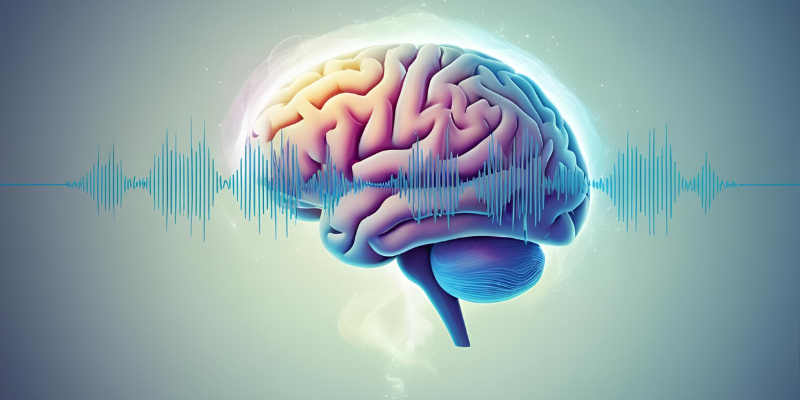Have you ever heard a song from your childhood and suddenly felt like you were right back in that moment—smelling the air, seeing the faces, and feeling the same emotions? Or maybe a particular melody instantly makes you feel calm, excited, or even tearful? Sound has a profound effect on our emotions and memory, often in ways we don’t fully understand. In this blog, we’ll explore how and why sound triggers emotional responses and plays a powerful role in shaping our memories.
The Science Behind Sound and Emotion
Sound is more than just vibration in the air. Once it enters our ears, it is transformed into electrical signals that travel through the auditory nerve to the brain. One of the key brain regions involved in processing sound is the amygdala, a structure deeply connected to emotional processing. Another is the hippocampus, which plays a crucial role in forming and retrieving memories.
When we hear a sound—whether it’s music, a voice, or a familiar noise—the brain doesn’t process it in isolation. Instead, sound is interpreted in context: how it makes us feel, what it reminds us of, and what we associate with it. This tight connection between the auditory system and emotion-related brain regions helps explain why certain sounds can instantly trigger feelings and memories.
Music: The Emotional Time Machine
Music is perhaps the most studied and well-understood example of how sound affects emotion. It can lift our spirits, reduce anxiety, energize us, or bring us to tears. But why?
One explanation lies in musical structure—the tempo, pitch, rhythm, and harmony. A fast tempo and major key tend to create happiness or excitement, while slow tempos and minor keys often evoke sadness or introspection.
Another factor is cultural and personal association. A national anthem may stir pride, while a lullaby might bring comfort because it’s associated with childhood. These associations form because of emotional imprinting, where strong emotional experiences become linked to the music playing at the time.
Music also releases dopamine, a neurotransmitter tied to pleasure and reward. This explains the “chills” we sometimes get when listening to powerful music—our brain is rewarding us.
Sound and Memory: More Than Just Background Noise
Our brains are wired to store memories not just as isolated facts, but as multi-sensory experiences. This means that memory is often triggered by a specific sound or song.
This phenomenon, known as auditory memory cueing, happens when certain sounds become mentally linked with specific experiences. For example:
- A particular ringtone might instantly remind you of someone.
- Hearing birds chirp might take you back to early morning walks.
- A childhood TV show’s theme song might flood you with nostalgia.
Because the brain stores sounds along with other sensory inputs, they can act as powerful triggers. In fact, research has shown that music can help people with Alzheimer’s disease recall forgotten memories and even regain lost emotional connections.
Everyday Sounds That Influence Mood
It’s not just music that affects our emotions—ambient and environmental sounds also play a big role. The hum of city traffic, the crashing of waves, or the crackling of a fireplace can influence how we feel and what we remember.
- Nature sounds like rain, birdsong, or ocean waves often promote calmness and relaxation. These sounds are even used in therapy and meditation to reduce stress.
- Urban sounds—like honking horns or construction—can induce stress or anxiety, especially when experienced over long periods.
- White noise or background chatter can improve focus for some people, while others may find it distracting or overwhelming.
The emotional impact of everyday sounds is often subtle but persistent. Over time, they can affect our mental health, concentration, and even sleep quality.
The Role of Sound in Therapy and Healing
Because of its emotional power, sound is increasingly used in therapeutic settings. Music therapy is now recognized as an effective treatment for conditions such as:
- Depression and anxiety
- Post-traumatic stress disorder (PTSD)
- Autism spectrum disorders
- Memory loss and cognitive decline
In music therapy, trained professionals use sound and music to improve communication, expression, and emotional well-being. For example, patients may be encouraged to create or listen to music that reflects their feelings or experiences.
Similarly, sound therapy—which uses instruments like singing bowls, tuning forks, or gongs—is believed to restore mental and emotional balance through vibration and resonance.
How to Use Sound to Enhance Emotion and Memory in Daily Life
Understanding how sound influences us gives us the opportunity to use it more intentionally. Here are some simple ways to leverage sound in everyday life:
- Create a soundscape for productivity: Use ambient music, nature sounds, or low-level white noise to help focus and reduce distractions.
- Build a “memory playlist”: Curate songs that are meaningful to you and revisit them to relive positive memories or emotions.
- Use sound for emotional regulation: Feeling anxious? Try calming music or natural soundscapes. Need a boost? Put on something upbeat and energetic.
- Associate sound with new learning: Want to remember something better? Try playing a specific piece of music while studying—then replay it when you need to recall the material.
These practices can help reinforce emotional resilience, focus, and recall.
The Future of Sound Research
As neuroscience advances, researchers are uncovering even more ways in which sound can be used to enhance cognitive and emotional well-being. Technologies like binaural beats, AI-curated music therapy, and immersive soundscapes are being developed to tailor sound experiences to individual needs and brain patterns.
There is also growing interest in how sound can influence people with neurodivergent conditions, and how personalized sound environments can support learning, healing, and memory retention.
Final Thoughts
Sound is all around us, shaping how we feel, what we remember, and how we connect with our inner selves and the world. From the emotional pull of a song to the soothing effect of rain on the roof, the sounds we hear every day are far more than background noise—they are central to our mental and emotional lives.
By paying attention to the sounds we surround ourselves with, we can gain greater control over our mood, tap into deep memories, and even support our mental health. The next time you hear a song that gives you goosebumps or brings tears to your eyes, don’t just brush it off—it’s your brain telling a story through sound.


